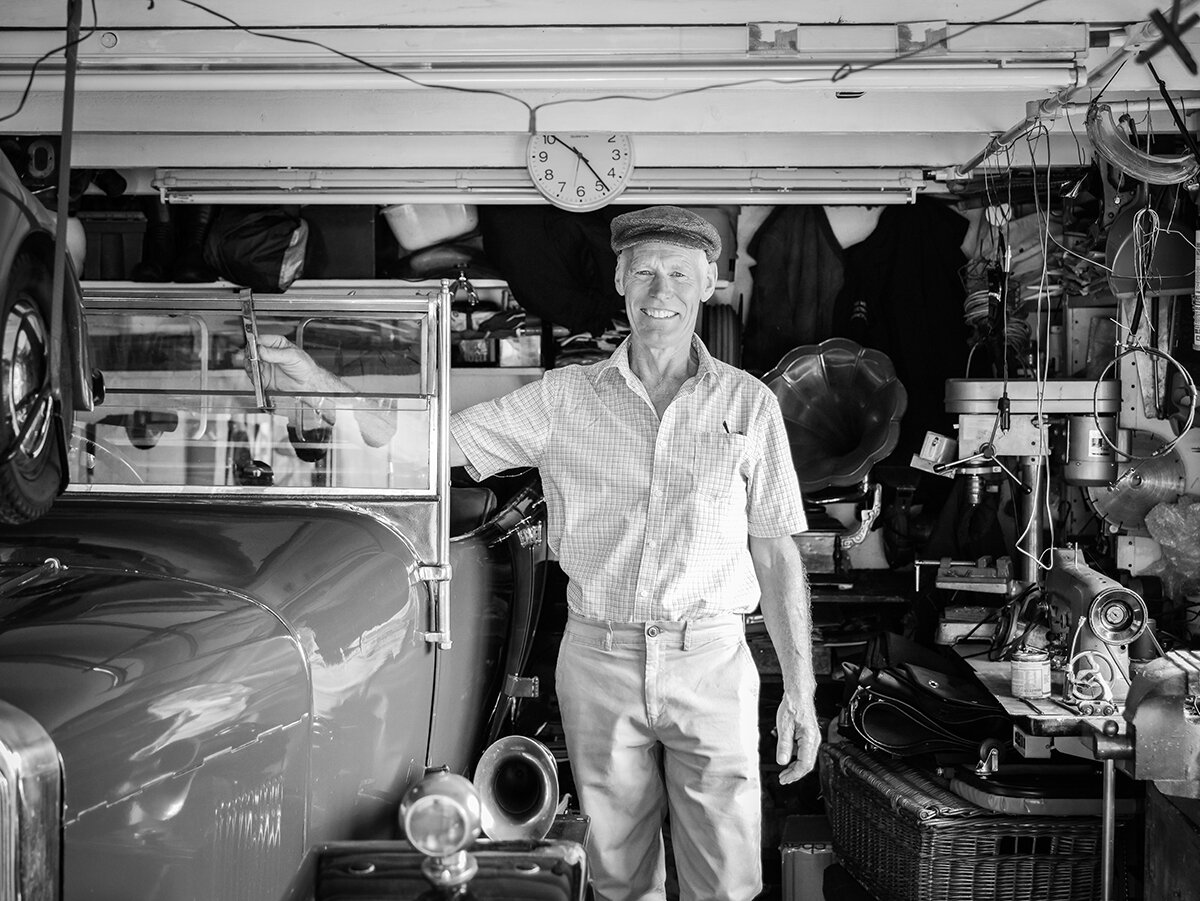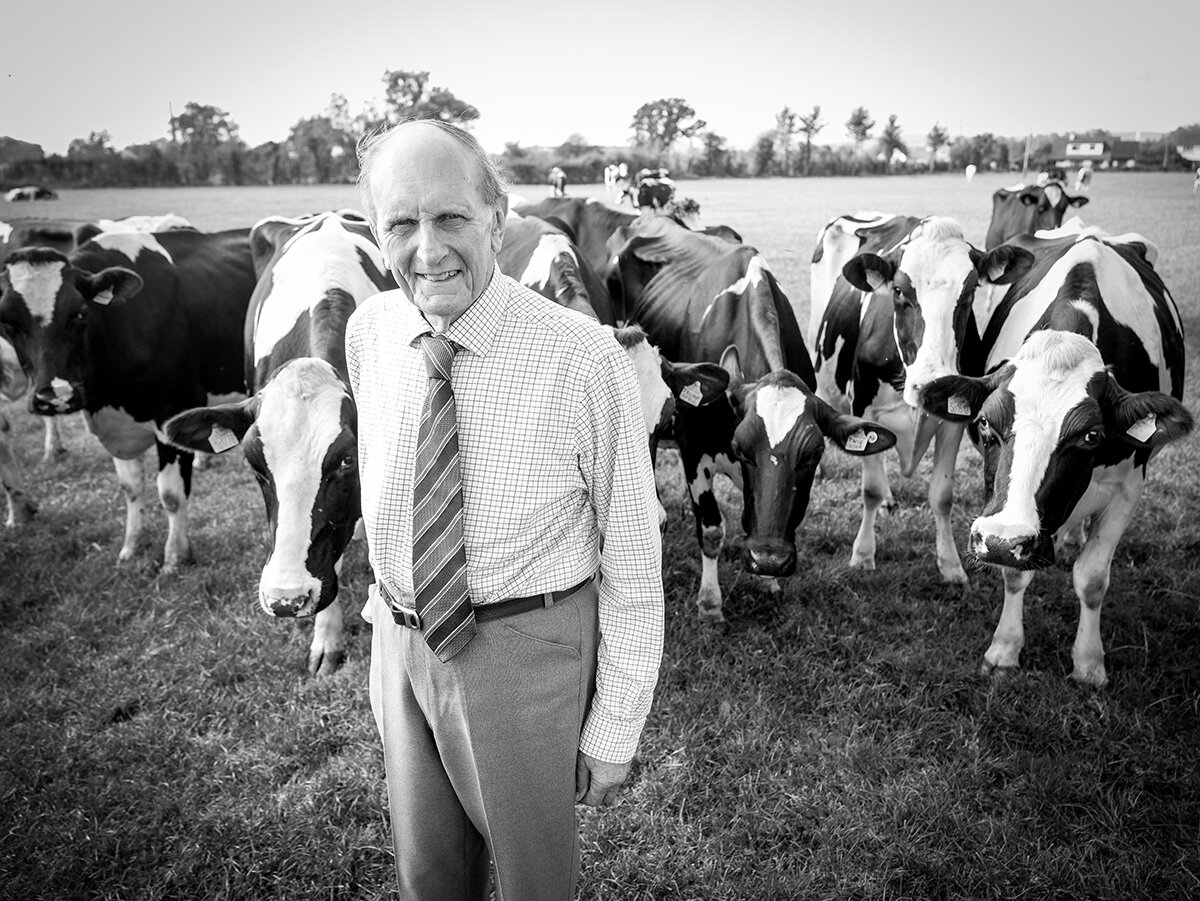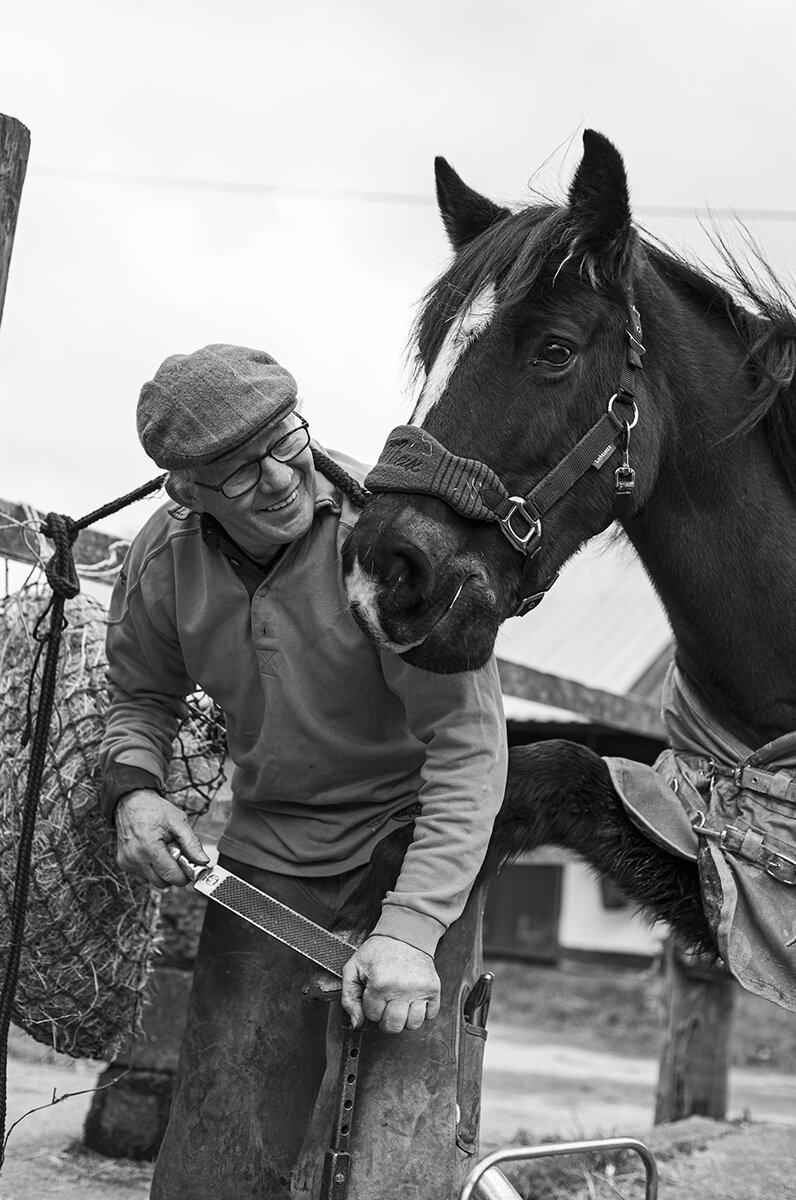- Stephanie Davies, farmer’s daughter (Rumney)
Stephanie Davies (Nanette Hepburn)
“We cycled or walked everywhere,” says Stephanie Davies of Upper Newton Farm as she recalls life on the Levels and the disruption that war brought.
Hand milking the Davies family’s dairy herd and running a milk round without electricity (power didn’t reach these parts until the 1950s) was hard enough. But managing the little farm after it took a direct hit from a German bomb didn’t make life easier. “One cow, she was blown out of the shed by the blast! They found her wandering up the next morning with the chain still round her neck. Alive!”
The nonagenarian farmer’s daughter remembers the itinerant reen cleaners who came to stay once a year: “We’d put a bed up for them in the barn. They were very strong men and they kept the reens clean with just a spade and a fork.”
She watched army lorries bringing unexploded ordnance onto the Levels (“they must have dumped them in the mud on what we called the lynches”) and generous GIs dishing out sweets. “We always did very well for food despite the rationing, but,” she admits, “it made such a difference to the work when we finally had the electricity.”
Life on the Levels Interview
Stephanie is the daughter of farmers from Rumney. She remembers the war and how it affected the area; her family home was bombed and they had to move out to other accommodation. She remembers the Home Guard on the seawall and many other fascinating details of this area.

























